Promoting our Interests
“Our lives as Americans are more intertwined than ever before with the lives of people in parts of the world that we may have never visited. In the global challenges of diplomacy, development, economic security, environmental security, you will feel our success or failure just as strongly as those people in those other countries that you'll never meet.”
Secretary of State and Chair of MCC‘s Board of Directors John Kerry
Speech at University of Virginia
February 20, 2013
Reflecting shared values grounded in opportunity and dignity as well as mutual interests that seek an end to aid dependency, MCC and our partner countries pursue one mission: poverty reduction through economic growth. MCC's strategic investments are helping the poor break through their barriers to economic growth, raise their incomes and create the right conditions for the private sector to drive prosperity. See what this means for the world's poor.
Investments at a Glance
Compact Investments by Sector (as of September 30, 2013)
Dates to Note during Fiscal Year 2013
- July 26, 2013: Signing of Georgia‘s second compact
- September 12, 2013: Approval of El Salvador‘s second compact by MCC‘s Board of Directors
- September 15, 2013: Completion of Morocco‘s compact
- September 17, 2013: Completion of compacts with Lesotho, Mongolia and Tanzania
- September 22, 2013: Completion of Mozambique‘s compact
| Country | EIF Date | Months Remaining | Time Elapsed | Compact Amount | Cumulative Commitments | % of Compact Committed | Cumulative Disbursements | % of Commitments Disbursed | % of Compact Disbursed | Commitments Oct '12 to Sep '13 | Targets Oct '12 to Sep '13 | Performance against Targets | Disbursements Oct '12 to Sep '13 | Targets Oct '12 to Sep '13 | Performance against Targets |
|---|---|---|---|---|---|---|---|---|---|---|---|---|---|---|---|
| Compact Information | Cumulative Progress | Year-to-date Performance | |||||||||||||
| Madagascar | Jul-05 | 0 | 100% | 85.6 | 85.6 | 100% | 85.6 | 100% | 100% | - | - | N/A | - | - | N/A |
| Honduras | Sep-05 | 0 | 100% | 204.0 | 204.0 | 100% | 204.0 | 100% | 100% | - | - | N/A | - | - | N/A |
| Cabo Verde I | Oct-05 | 0 | 100% | 108.5 | 108.5 | 100% | 108.5 | 100% | 100% | - | - | N/A | - | - | N/A |
| Georgia I | Apr-06 | 0 | 100% | 387.2 | 387.2 | 100% | 387.2 | 100% | 100% | - | - | N/A | - | - | N/A |
| Vanuatu | Apr-06 | 0 | 100% | 65.4 | 65.4 | 100% | 65.4 | 100% | 100% | - | - | N/A | - | - | N/A |
| Nicaragua | May-06 | 0 | 100% | 112.7 | 112.7 | 100% | 112.7 | 100% | 100% | - | - | N/A | - | - | N/A |
| Armenia | Sep-06 | 0 | 100% | 176.6 | 176.6 | 100% | 176.6 | 100% | 100% | - | - | N/A | - | - | N/A |
| Benin | Oct-06 | 0 | 100% | 301.8 | 301.8 | 100% | 301.8 | 100% | 100% | - | - | N/A | - | - | N/A |
| Ghana | Feb-07 | 0 | 100% | 536.3 | 536.3 | 100% | 536.3 | 100% | 100% | (3.2) | - | N/A | (3.8) | - | N/A |
| El Salvador I | Sep-07 | 0 | 100% | 449.6 | 449.6 | 100% | 449.6 | 100% | 100% | 5.8 | - | N/A | 17.3 | - | N/A |
| Mali | Sep-07 | 0 | 100% | 435.6 | 435.6 | 100% | 435.6 | 100% | 100% | - | - | N/A | 6.9 | - | N/A |
| Morocco | Sep-08 | 0 | 100% | 697.3 | 687.8 | 99% | 577.3 | 84% | 83% | 107.8 | 92.1 | 117% | 217.3 | 294.2 | 74% |
| Lesotho | Sep-08 | 0 | 100% | 362.6 | 355.3 | 98% | 324.4 | 91% | 89% | 48.7 | 27.4 | 178% | 128.6 | 137.5 | 94% |
| Mozambique | Sep-08 | 0 | 100% | 506.9 | 437.2 | 86% | 395.3 | 90% | 78% | 17.6 | 63.6 | 28% | 193.3 | 155.3 | 124% |
| Tanzania | Sep-08 | 0 | 100% | 698.1 | 690.5 | 99% | 620.1 | 90% | 89% | 36.0 | 52.4 | 69% | 275.1 | 351.4 | 78% |
| Mongolia | Sep-08 | 0 | 100% | 284.9 | 274.2 | 96% | 257.0 | 94% | 90% | 28.6 | 106.1 | 27% | 93.8 | 106.1 | 88% |
| Burkina Faso | Jul-09 | 9 | 85% | 480.9 | 410.3 | 85% | 267.8 | 65% | 56% | 99.7 | 104.1 | 96% | 128.9 | 183.0 | 70% |
| Namibia | Sep-09 | 11 | 82% | 304.5 | 282.0 | 93% | 186.6 | 66% | 61% | 83.0 | 82.7 | 100% | 81.8 | 104.0 | 79% |
| Senegal | Sep-10 | 23 | 62% | 540.0 | 456.2 | 84% | 85.6 | 19% | 16% | 437.8 | 362.1 | 121% | 72.8 | 104.7 | 70% |
| Moldova | Sep-10 | 23 | 62% | 262.0 | 147.9 | 56% | 61.0 | 41% | 23% | 24.6 | 73.7 | 33% | 36.3 | 73.7 | 49% |
| Philippines | May-11 | 31 | 48% | 433.9 | 308.9 | 71% | 110.9 | 36% | 26% | 148.9 | 100.9 | 147% | 65.9 | 100.9 | 65% |
| Jordan | Dec-11 | 38 | 37% | 275.1 | 181.9 | 66% | 56.8 | 31% | 21% | 33.5 | 64.8 | 52% | 41.4 | 64.8 | 64% |
| Cabo Verde II | Nov-12 | 50 | 17% | 66.2 | 3.8 | 6% | 2.8 | 75% | 4% | 3.7 | 3.0 | 124% | 2.5 | 2.0 | 125% |
| Indonesia | Apr-13 | 54 | 10% | 600.0 | 30.7 | 5% | 26.6 | 87% | 4% | 28.1 | 5.6 | 503% | 26.6 | 5.6 | 477% |
| Malawi | Sep-13 | 59 | 2% | 350.7 | 2.8 | 1% | 1.7 | 62% | 0% | 1.7 | 7.0 | 24% | 1.7 | 6.0 | 29% |
| Zambia | Nov-13 | 60 | 0% | 354.8 | 14.4 | 4% | 10.6 | 74% | 3% | 11.6 | 4.6 | 254% | 9.3 | 13.0 | 71% |
| Georgia II | TBD | 60 | 0% | 140.0 | - | 0% | - | 0% | 0% | - | - | N/A | - | - | N/A |
| Grand Total | 9,221.2 | 7,147.1 | 78% | 5,847.9 | 82% | 63% | 1,113.9 | 1,150.2 | 97% | 1,395.76 | 1,702.19 | 82% | |||
Estimating Compact Beneficiaries and Benefits
Under MCC‘s results framework, beneficiaries are defined as an individual and all members of his or her household who will experience an income gain as a result of MCC interventions. We consider that the entire household will benefit from the income gain and beneficiary counts are multiplied by the average household size in the area or country. The beneficiary standard makes a distinction between individuals participating in a project and individuals expected to increase their income as a result of the project. Before signing a compact, MCC estimates the expected long-term income gains through a rigorous benefit-cost analysis. MCC may reassess and modify its beneficiary estimates and/or the present value of benefits when project designs change during implementation.
| Compact | Estimated Number of Beneficiaries | Estimated Long-Term Income Gain Over the Life of the Project (PV of Benefits)4 | Benefit/ Cost Ratio5 | Status of Compact |
|---|---|---|---|---|
| Armenia | 426,000 | $295,500,000 | 1.7 | Completed |
| Benin | 14,059,000 | $409,600,000 | 1.8 | Completed |
| Burkina Faso | 1,181,000 | $151,000,000 | 0.4 | In Implementation |
| Cabo Verde I | 385,000 | $149,500,000 | 1.8 | Completed |
| Cabo Verde II | 604,000 | $148,200,000 | 1.6 | In Implementation |
| El Salvador | 706,000 | $366,700,000 | 1.0 | Completed |
| Georgia | 143,000 | $301,300,000 | 1.0 | Completed |
| Ghana | 1,217,000 | $690,300,000 | 1.7 | Completed |
| Honduras | 1,705,000 | $237,300,000 | 1.5 | Completed |
| Indonesia6 | 2,900,000 | $136,600,000 | 1.5 | in Implementation |
| Jordan | 3,657,000 | $800,300,000 | 4.1 | In Implementation |
| Lesotho | 1,041,000 | $376,000,000 | 1.5 | Completed |
| Madagascar | 480,000 | $123,200,000 | 1.7 | Terminated7 |
| Malawi | 983,000 | $567,200,000 | 2.4 | In Implementation |
| Mali | 2,837,000 | $393,600,000 | 1.2 | Terminated7 |
| Moldova | 414,000 | $259,900,000 | 1.5 | In Implementation |
| Mongolia | 2,058,000 | $314,800,000 | 1.7 | Completed |
| Morocco | 1,695,000 | $805,400,000 | 1.6 | Completed |
| Mozambique | 3,325,000 | $542,300,000 | 1.5 | Completed |
| Namibia | 1,063,000 | $240,500,000 | 1.1 | In Implementation |
| Nicaragua | 119,000 | $83,500,000 | 1.0 | Completed |
| Philippines | 125,822,000 | $483,300,000 | 1.6 | In Implementation |
| Senegal | 1,660,000 | $625,000,000 | 1.6 | In Implementation |
| Tanzania | 5,425,000 | $1,335,800,000 | 2.6 | Completed |
| Vanuatu | 39,000 | $73,800,000 | 1.4 | Completed |
| Total for All Compacts8 | 173,945,000 | $9,910,600,000 | 1.6 |
- The table includes estimates for compacts that have entered into force and have economic rates of return (ERRs) from which income benefit calculations can be drawn. The Benin II, Georgia II, Ghana II, and Zambia compacts had not yet entered into force by the end of the fiscal year.
- These estimates do not include the projected beneficiaries of projects or activities that have been terminated or suspended by MCC (Honduras, Nicaragua and Armenia).
- Two compacts have been terminated, Madagascar and Mali. Madagascar’s estimates reflect the early termination while Mali’s do not.
- The present value (PV) of benefits is the sum of all projected benefits accruing over the life of the project, typically 20 years, evaluated at a 10 percent discount rate. Estimates are reported in millions of U.S. dollars in the year that the ERR analysis was completed. Because the PV of benefits uses a discount rate, these figures cannot be compared directly to the undiscounted financial costs of MCC compacts, but must be compared to the PV of costs instead.
- The benefit/cost ratio is calculated by dividing the PV of benefits by the PV of costs. The PV of costs is the sum of all projected compact costs evaluated at a 10 percent discount rate.
- Beneficiary and benefit figures for Indonesia are currently available for only one of three activities.
- This refers to an early termination of the compact due to an undemocratic change in government that is contrary to MCC’s eligibility.
- Column totals may not equal the sum of the individual rows due to rounding.
MCC‘s Threshold Program
First-Generation Threshold Program
The first generation of individual country programs was designed to be short-term and targeted to assisting countries improve performance on MCC‘s eligibility indicators. An internal review of lessons learned, supplemented by consultations with a broad range of external stakeholders and USAID, which worked in partnership with MCC to implement the first-generation Threshold Program, inspired the redesigned second- generation Threshold Program.
- Provided $495 million in grants to 21 countries worldwide for Threshold Programs focused on ruling justly, investing in people and economic freedom.
- Of the 21 Threshold Program countries, 10 have been selected as compact eligible: Eight countries (Burkina Faso, Indonesia, Jordan, Malawi, Moldova, Philippines, Tanzania, Zambia) signed compacts and two countries (Liberia, Niger) are developing compacts, while currently working to complete certain parts of their respective Threshold Programs.
- Timor-Leste is currently implementing a Threshold Program.
Second-Generation Threshold Program
MCC crafted the second-generation Threshold Program to include a program design based on deeper diagnostic, feasibility and cost-effectiveness analyses and a targeted policy focus on easing binding and institutional constraints to economic growth in a country. The second-generation Threshold Program also includes an increased level of country ownership, monitoring and evaluation and MCC oversight of the diagnostic, design and implementation processes.
- $15.6 million Honduras Threshold Program approved March 14, 2013, and signed August 28, 2013.
- Threshold Programs in development with the following eligible countries: Guatemala, Nepal and Tunisia.
Practicing our Values
By embracing collaboration and respecting individuals and ideas, MCC is investing in programs that work to put the poor in partner countries on a path to higher incomes and greater economic growth.
Partnering for Implementation
True to our principle of country-owned and country-led development, MCC asks partner countries to take the lead in implementing their compacts. To do this, each MCC partner country establishes a local entity, known as a Millennium Challenge Account (MCA), to manage the responsibilities of compact implementation. Active MCAs during fiscal year 2013 in partner countries—which have officially started, are completing or have finished their respective five-year timelines for compact implementation—included:
| Country | MCA Name | Website | |
|---|---|---|---|
| Burkina Faso | MCA-Burkina Faso | www.mcaburkina.org | |
| Cabo Verde | MCA-Cabo Verde | www.mca.cv | |
| Indonesia | MCA-Indonesia | www.mca-indonesia.go.id | |
| Jordan | MCA-Jordan | www.mca-jordan.gov.jo | |
| Lesotho | MCA-Lesotho | www.mca.org.ls | |
| Malawi | MCA-Malawi | www.mca-m.gov.mw | |
| Moldova | MCA-Moldova | www.mca.gov.md | |
| Mongolia | MCA-Mongolia | www.mca.mn | |
| Morocco | Agence du Partenariat pour le Progrès | www.app.ma | |
| Mozambique | MCA-Mozambique | www.mca.gov.mz | |
| Namibia | MCA-Namibia | www.mcanamibia.org | |
| Philippines | MCA-Philippines | www.mcap.ph | |
| Senegal | MCA-Senegal | www.mcasenegal.org | |
| Tanzania | MCA-Tanzania | www.mca-t.go.tz |
Investing in Key Sectors
Results in Agriculture and Irrigation
Spotlight: How agricultural competitiveness in Moldova advances prosperity
- 247,683
- farmers trained
- 120,569
- farmers who have applied improved practices as a result of training
- 4,008
- enterprises assisted
- 139,280
- hectares under improved irrigation
- $94.3
- million in agricultural and rural loans
Results as of September 2013
No sector has been hit harder by Moldova‘s transition from Soviet central planning to a market economy than agriculture. Agriculture employs about 30 percent of Moldovan citizens, yet poverty has been a persistent problem for them. Poverty rates among farmers and agricultural workers reach 36 percent and 45 percent, respectively.
MCC partnered with the U.S Agency for International Development on the Agricultural Competitiveness and Enterprise Development (ACED) Project as part of Moldova‘s $262 million MCC compact. This project is improving prospects for Moldovan farmers and agricultural workers as they transition the country to high-value agriculture. It is helping Moldovans develop market linkages, receive training and technical assistance to improve product quality and meet buyer requirements, upgrade the capacity of agribusinesses and associations, and improve inspection and testing capacities at border stations and within phytosanitary laboratory facilities.
For example, modernizing phytosanitary inspections (pictured) and meeting international sanitary and phytosanitary standards are first steps to increasing the access and exportability of Moldovan produce to international markets. As of January 2013, 2,294 business representatives, one-third of whom are women, received guidance and training through ACED on these post-harvest techniques that are making Moldovan produce more competitive in meeting consumer demand across borders.

Results in Roads
Spotlight: How a road in Tanzania advances prosperity
- 4,649
- kilometers of roads under design
- 3,939
- kilometers of roads under works contracts
- 2,255
- kilometers of roads completed
Results as of September 2013
Issa Ali (second from right) has ridden the local bus almost every day for the past seven years. His five-hour journey takes him from Tanga in northeastern Tanzania to the Tanzania-Kenya border crossing at Horohoro and the western stop in Mwakijembe. At each stop, Ali collects fares and packs luggage in the cargo hold.
It wasn‘t always an easy ride.
“The road was so bad,” said Ali, 31. “We frequently broke down. The tires would pop. Now, that doesn‘t happen.”
That‘s because MCC, as part of our $698 million compact with Tanzania, improved this vital stretch of road by widening and paving 65 kilometers. Safety curbs were added to protect walkers and bicyclists. Eleven bridges received upgrades, and six cantilever walkways were installed.
The upgrade means that an asphalt-paved highway route now exists between Dar es Salaam and the port of Mombasa, Kenya. Traffic has already increased fivefold along the road, from about 200 to 1,000 cars each day as of late 2012.
The new road should particularly benefit the region‘s farmers. Much of the fruit grown near Ali‘s home in Tanga—mostly pineapples, passion fruit, oranges, and mangoes—travels to markets through Mombasa‘s port.
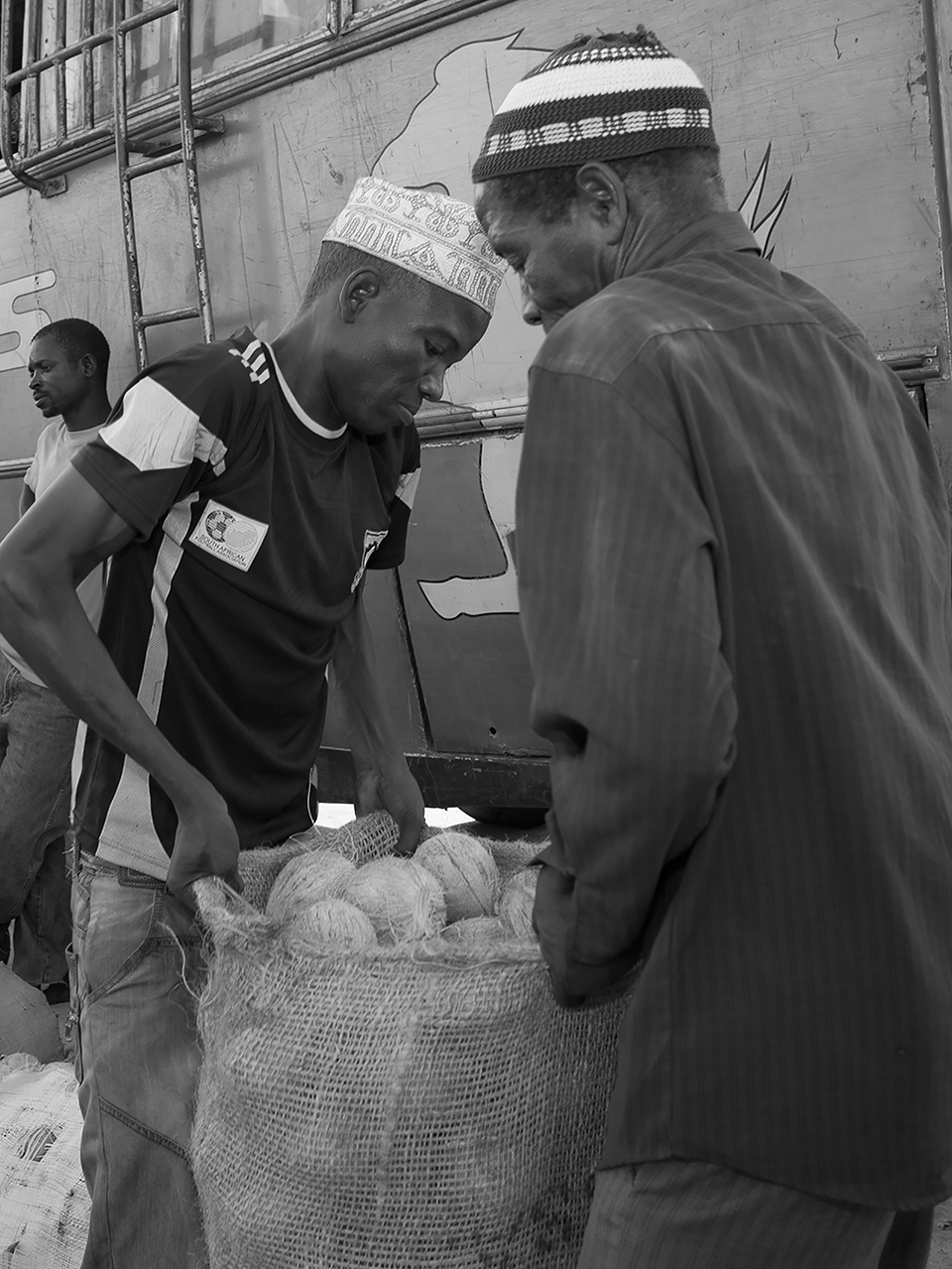
Results in Land
Spotlight: How mapping land in Burkina Faso advances prosperity
- 79
- legal and regulatory reforms adopted
- 27,022
- stakeholders trained
- 220,883
- parcels corrected or incorporated into an official land information system
- 187,003
- household land rights formalized
Results as of September 2013
Until now, a lack of land property rights caused conflicts and eliminated the incentive for farmers and businessmen in Burkina Faso to invest in their land and its productivity. This caused missed opportunities for economic growth and poverty reduction.
For Burkina Faso, the challenges of producing geographic information to identify boundaries make it hard to clarify land rights. MCC‘s $481 million compact with Burkina Faso includes the $59.9 million Rural Land Governance Project, aimed at improving land management and land-tenure security. As part of the project, MCC is creating a national geographic positioning network made up of nine Continuously Operating Reference Stations (CORS), which capture positioning data from the global satellite system and enhance its accuracy on the ground.
Networked together, the nine CORS (pictured) allow land users to secure more accurate descriptions of their legal rights and the position of their holdings, as well as reduce boundary disputes resulting from the localized mapping systems Burkina Faso previously used.
With its CORS network, Burkina Faso can now complete the mapping and surveying required for the future development of roads and other public infrastructure.
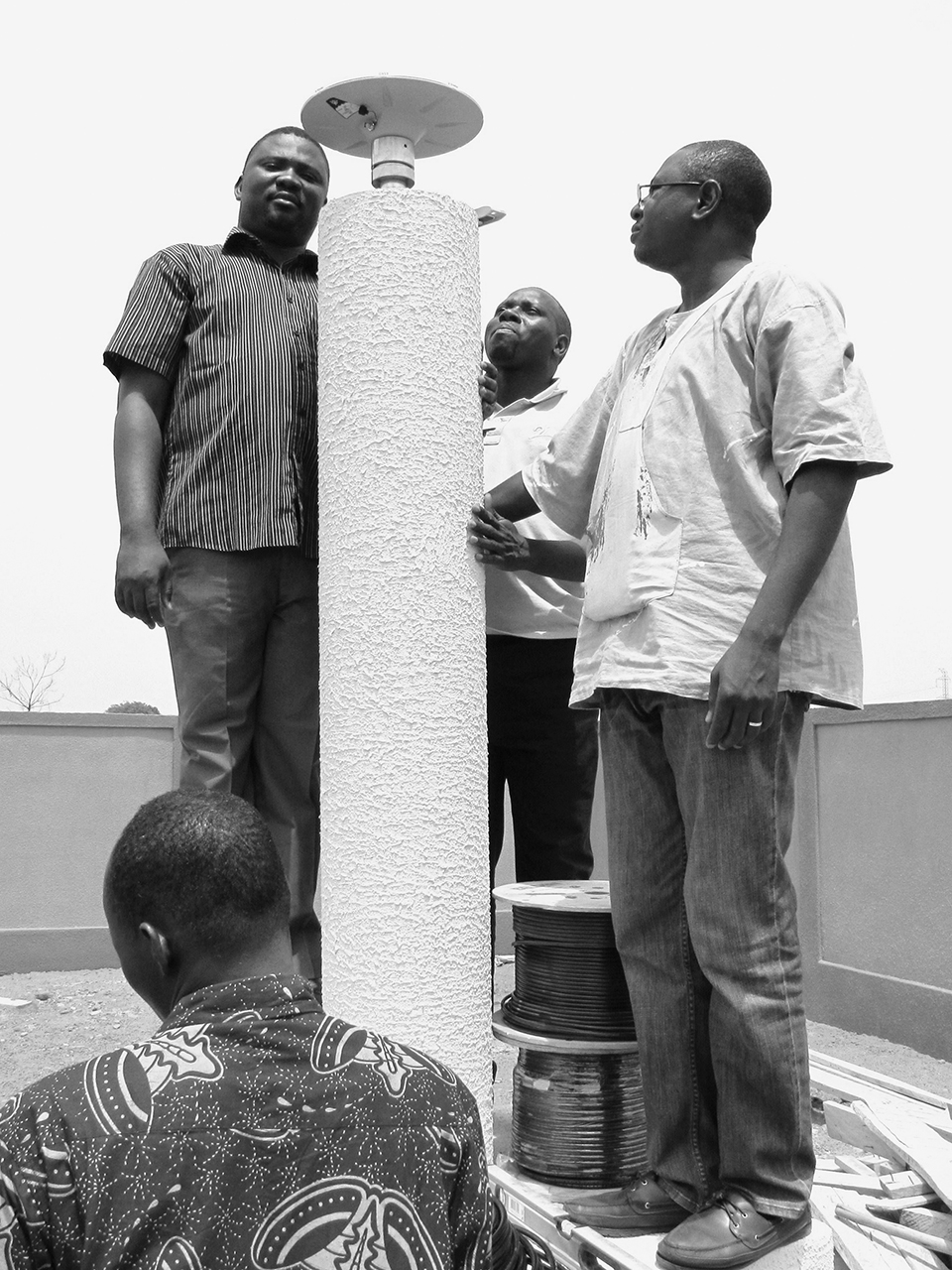
Results in Water Supply, Sanitation and Hygiene
Spotlight: How water in Mozambique advances prosperity
- $48.2
- million in signed water and sanitation feasibility and design contracts
- 11,754
- persons trained in hygiene and sanitary best practices
- 1,138
- water points constructed
Results as of September 2013
Zainabo Ordenança, a farmer and mother, spent much of her time traveling to and from the river to fetch untreated water for her farm and her children. In Mecupes, a rural district of Mozambique‘s Napula province, clean water was not readily available for Ordenança and her neighbors. That was before MCC and the Government of Mozambique partnered to install a hand-powered water pump (pictured).
“Life here has improved,” Ordenança said, “and it is because we have this gift of clean water.”
Mecupes is one of 600 villages to receive access to clean water as part of MCC‘s $507 million compact with Mozambique. Access to a hand-powered pump, as well as a nearby washing basin and latrines, has impacted every aspect of life for the 1,900 residents of Mecupes.
Mothers such as Ordenança no longer worry about their children dying of cholera. For two years now, there have been no incidences of cholera in Mecupes. Water access has also upgraded local irrigation practices, raising the productivity of farmers. Some beneficiaries are using the extra income from increased farm production to start or expand small businesses, setting the stage for further economic growth in Mozambique.
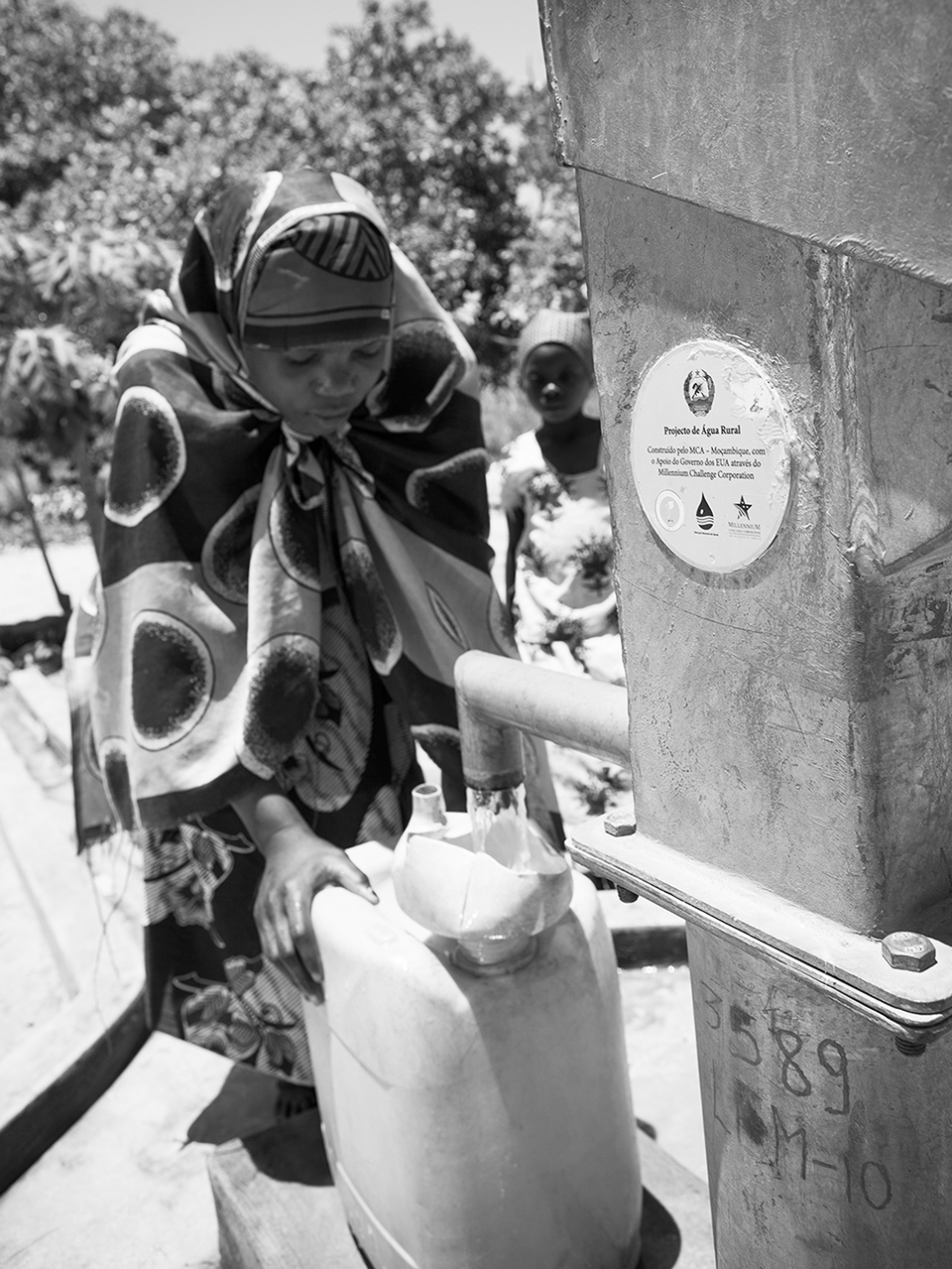
Results in Education
Spotlight: How training in Morocco advances prosperity
- 715
- educational facilities constructed or rehabilitated
- 2,790
- instructors trained
- 211,127
- students participating in MCC-supported education activities
- 24,305
- graduates from MCC-supported education activities
- 176
- employed graduates of MCC-supported education activities
Results as of September 2013
Chaimae and Nouhaila Salfi (pictured) know shoes. Inspired by their favorite brand, Bata, the sisters intend to make high-end shoes that men across the globe will want to own.
To reach their goal, the sisters enrolled in a leatherwork course at the artisan school in Fez, Morocco. They are able to attend vocational training through the Artisan and Fez Medina Project, part of MCC‘s $698 million compact with Morocco. This project financed training at 15 residential training institutions and 23 other training centers in five artisan crafts: carpentry, ironwork, ceramics, leather, and textiles. Almost 23,000 people are expected to receive professional training in design and production techniques, workplace safety and marketing or commercialization skills. This is equipping aspiring artisans with the know-how to work and succeed in the modern economy with traditional handicrafts.
In Fez, the Salfi sisters are learning to strike a balance between comfort and fashion, spending hours at the drafting board dreaming up the perfect footwear. Chaimae, 20, wants to work at a big shoe firm, starting in design and making her way up to executive management. Nouhaila, 15, doesn‘t have plans as detailed as her sister, but she definitely wants to design men‘s shoes. “Before he died, our father told us he wanted us to succeed,” Chaimae said. “I want him to be proud of us.”
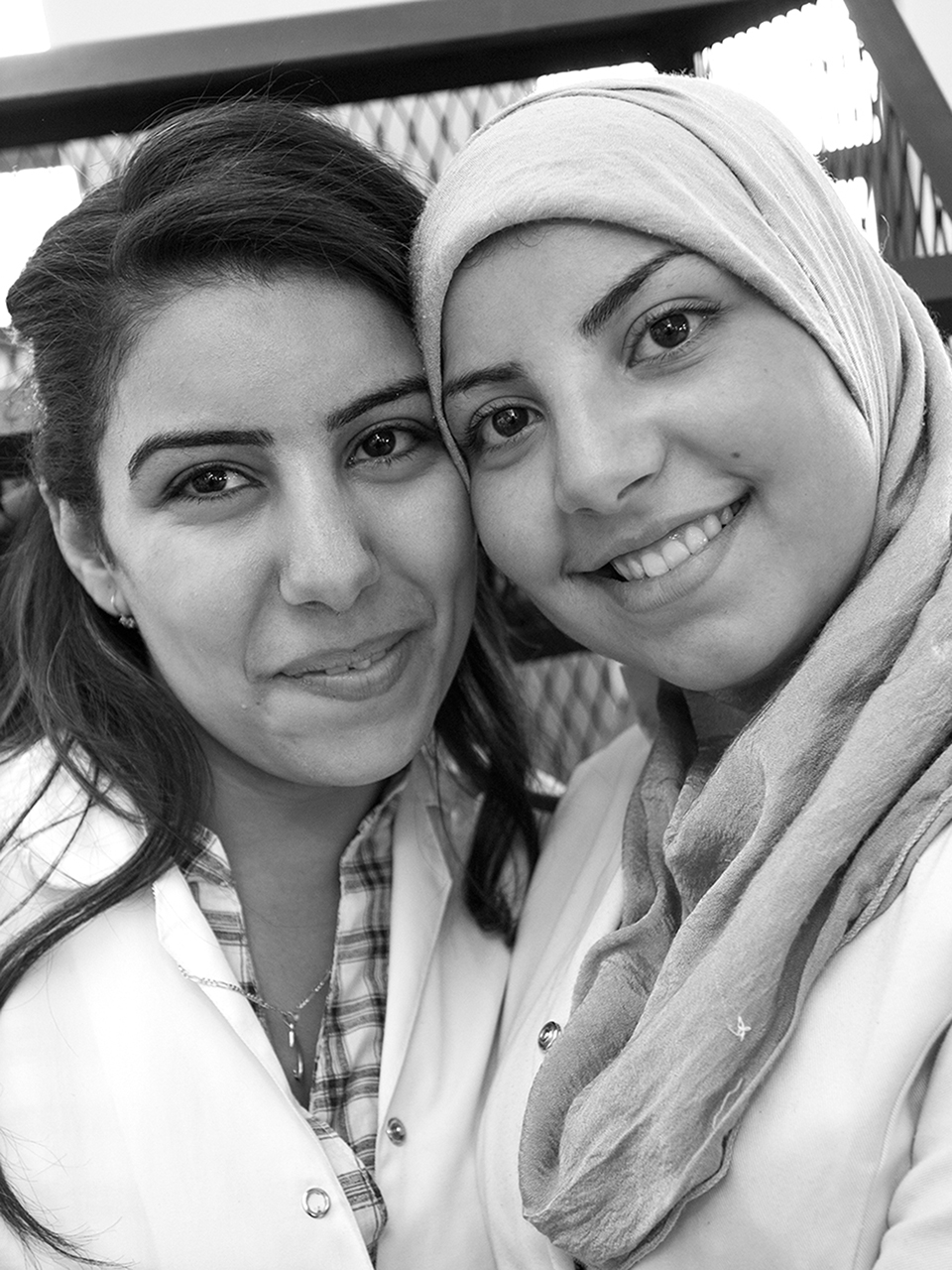
Results in Energy
Spotlight: How clean energy in Mongolia advances prosperity
- $153.6
- million in signed energy infrastructure construction contracts
- 4,309
- kilometers of lines completeds
Results as of September 2013
Over the past decade, air pollution in the capital of Mongolia has been a growing problem—so much so that Ulaanbaatar now has the second-highest level of air pollution in the world. The Government of Mongolia and MCC partnered to provide Mongolians with greater access to green technologies that help reduce air pollution and cut energy costs.
Through their $285 million compact with MCC, Mongolians invested in a healthier future of clean, renewable energy through the Energy and Environment Project. This initiative supported the consumer purchase of more than 90,000 stoves (like the one pictured) and 25,000 other energy-efficient appliances in Ulaanbaatar. The project also funded small grants for greening and air quality research. Ensuring a sustainable power supply in Mongolia also means constructing a wind farm on Salkhit Mountain. MCC is funding the connection of this clean energy source to Mongolia‘s electrical grid and updating existing power stations. Investments like these are helping to clean the air in Ulaanbaatar and solve the long-term problem of air pollution, safeguarding a sustainable environment in Mongolia.
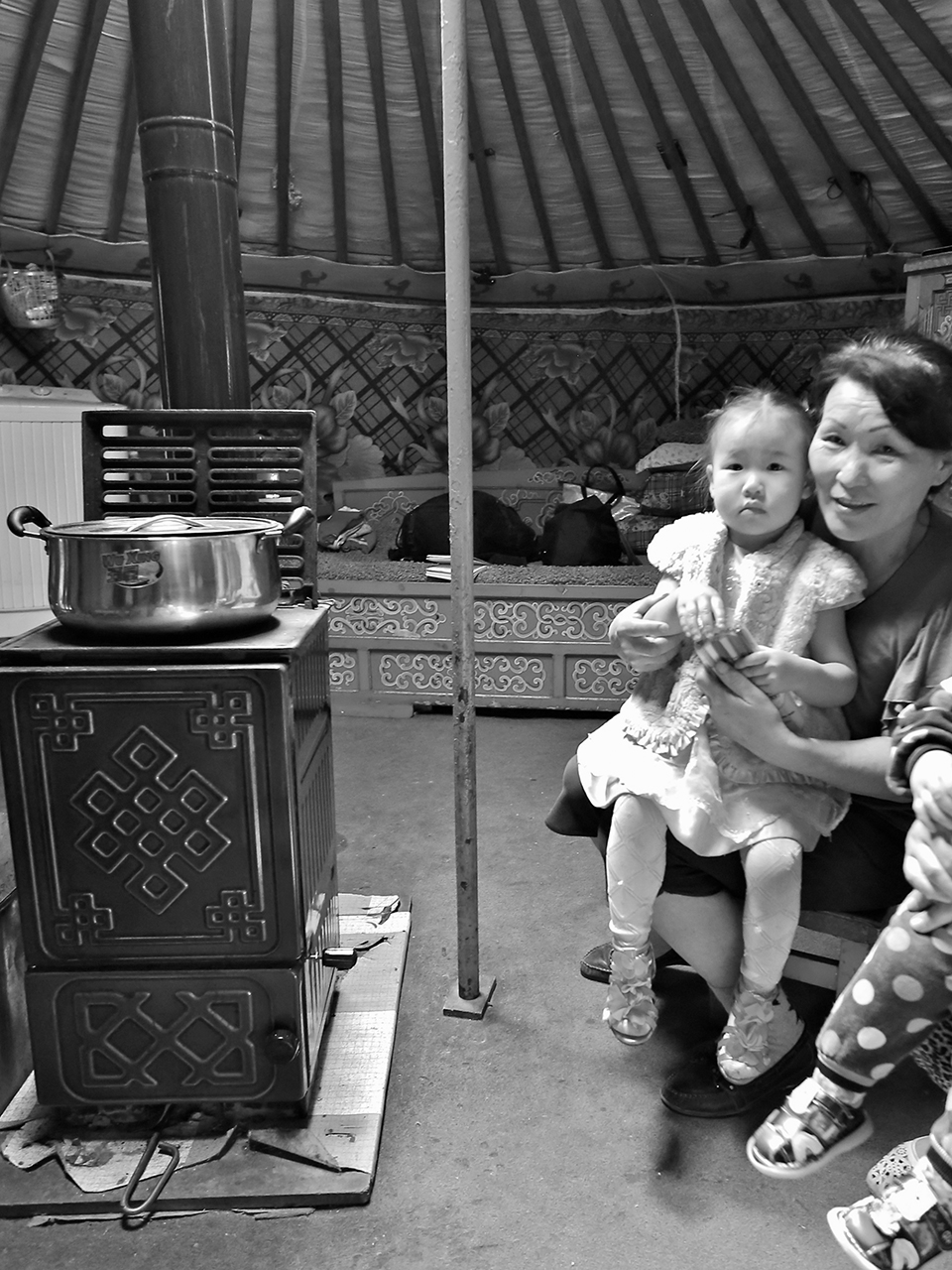
Celebrating Compact Completions
During fiscal year 2013, MCC completed compacts with Lesotho, Mongolia, Morocco, Mozambique, and Tanzania. This is the largest number of compacts to close in one fiscal year. MCC‘s combined investment of more than $2.5 billion in these five countries built roads to markets, expanded access to clean water and sanitation, generated greater energy security, and improved health and education. To reinforce the value of our investments and ensure their sustainability, major policy and institutional reforms accompanied specific projects. Accounting for nearly half of MCC‘s total portfolio under management, investments in these five countries are expected to benefit 12 million people. Highlights from the largest set of outputs to materialize at one time include:
Lesotho
- Policy reforms
- MCC supported the passage of the Legal Capacity of Married Persons Act that removed the minority status of married women and protects several new rights for them, including the right to enter into contracts, register immovable property in their name and act as a company director.
- Health
- By building or rehabilitating 138 health centers, 14 hospital outpatient departments, a new blood transfusion center, a central laboratory, and residences for students at the National Health Training College, the MCC-funded compact strengthened Lesotho‘s health care system.
- Water and sanitation
- MCC extended and rehabilitated 143.7 kilometers of pipe in the urban and peri-urban water network (out of an existing total of 173.67 kilometers), and 30,000 households across the country will receive ventilated improved pit latrines. The construction and rehabilitation of reservoirs, pump stations, treatment plants, and reticulation are expected to improve access to potable drinking water for more than 124,000 people in urban and peri-urban areas. Close to 113,000 people in rural areas are also expected to benefit from improved water infrastructure.
- Land rights
- As of December 2012, more than 8,500 women hold titles to land, compared to 3,200 before the compact‘s start. Mortgages have doubled because the Land Act and new Land Administration Authority have streamlined legislation and procedures.
Mongolia
- Policy reforms
- The passage of the technical vocational education and training (TVET) law in 2009 puts in place a framework for a modern TVET system, fostering institutional mechanisms for a more demand-driven and private sector engaged TVET system.
- Health
- 15,604 health staff (72 percent of whom are women) and 565 school teachers were trained in non-communicable disease and injury.
- Workforce development
- A total of 18 schools received the latest technology in training equipment for priority trades, including heavy machinery operation, lathe milling, electricity, electronics, plumbing, welding, and heating and cooling.
- Land rights
- MCC established a new system for rangeland management around cities, provided 15-year land leases to 387 herder groups that include 1,315 households, installed wells on 311 parcels and trained the herder groups on sustainable pasture use and livestock productivity. Fifteen land administration and service offices have been established or upgraded.
- Infrastructure
- 176 kilometers of road were rehabilitated that will connect the country‘s north and south for the first time, stretching from Russia to China.
- Energy
- MCC funded product testing, the establishment of a new distribution channel and limited subsidies to support consumer purchases of new energy-efficient products. This resulted in sales of 97,786 solid fuel stoves, as well as insulation, vestibules and 98 energy-efficient homes.
Morocco
- Policy reforms
- Wholesale fish sellers previously operated like a monopoly, and rights to wholesale fish buying and selling were generally hereditary. After consulting with producers and consumers in the fisheries market, the Moroccan Parliament enacted new regulations ensuring open and competitive markets. The change is incentivizing growth in wholesale fish commerce.
- Agricultural productivity
- 60,086 hectares of annual cereal crops have been converted into olive and almond trees, leading to an increased and stable income for 40,000 farmer households. More than 23,000 adult farmers and more than 7,600 youth farmers have been trained on improved agricultural practices.
- Fisheries
- More than 16,500 fishers received training to enhance their practices, and 623 mobile fish vendors received heavy-duty, three-wheeled motorbikes with insulated ice chests to preserve the quality of their fish to maximize sales.
- Artisans
- 2,332 artisan potters were trained in improved production techniques.
- Workforce development
- More than 11,000 farmers, artisans and fishers—77 percent of whom are women—graduated from the functional literacy program where they developed professional skills and improved their employment prospects.
Mozambique
- Policy reforms
- MCC partnered with the World Bank to launch the Administração de Infraestruturas de Ãgua e Saneamento (AIAS), a new institution to manage water supply and sanitation assets in Mozambican cities with a population between 50,000 and 150,000. With the creation of AIAS, Mozambicans are better positioned to meet consumer demand in small- and medium-sized cities.
- Water and sanitation
- In addition to rehabilitating the Nacala Dam and constructing water treatment facilities in Nampula, more than 600 communities now have improved water access through the construction of 611 water access points with hand pumps. This provides women, often the primary water gatherers, more time for child care, education and income-generating activities, and improved health and sanitation conditions reduce water-borne diseases like cholera. 8,484 people were trained in hygiene and sanitary best practices.
- Agricultural productivity
- 8,000 hectares with diseased or dead palm trees have been cleared in the endemic zone to prevent the continued spread of the Coconut Lethal Yellowing Disease. In addition, 782,609 coconut seedlings were planted and 28,830 farmers trained in post-planting management of coconuts to ensure the survival rate of new coconut seedlings.
- Land rights
- 9,456 rural and 144,522 urban landholders (or a total of 153,978 landholders) in four northern provinces received formalized land rights.
- Infrastructure
- Rehabilitation is underway of 253 kilometers of key segments of National Route 1.
Tanzania
- Policy reforms
- Together with other donors, MCC pushed for the creation of an effective National Road Safety Policy. The new policy is expected to create a Road Safety Board with sufficient autonomy and funding to effectively push for greater road safety. The World Bank has agreed to fund additional road safety programs over the next three to five years.
- Water and sanitation
- MCC is assisting local authorities to increase the volume and quality of water to Morogoro. Once the Morogoro water plants have been upgraded, the Mafiga and Mambogo plants are expected to produce 33 million liters of water per day.
- Infrastructure
- 65.14 kilometers of roads have been upgraded in mainland Tanzania, and 100 percent of the runway surfacing at the Mafia Island airport has been completed.
- Energy
- MCC installed a new 24-kilometer submarine cable between the mainland and Zanzibar and constructed more than 40 kilometers of distribution lines on the island in order to improve access to electricity and attract outside investment. Thanks to MCC‘s investment, the power utility can provide 100 megawatts for the island and handle up to 250,000 customers, almost double the current number. In all, MCC constructed more than 2,300 kilometers of transmission and distribution lines in mainland Tanzania.
Integrating Core Practices
Across investments in all sectors, MCC continued to refine how we integrate certain key practices. These focused on:
Private Investment
From our creation, MCC has viewed the private sector as the engine of sustainable economic growth. That is why we have worked to structure the programs we fund to attract, increase and sustain private investment. MCC‘s Finance, Investment and Trade (FIT) team continued to develop and implement the investment opportunity process for countries eligible for compact and threshold program funding. This framework and set of tools support partner countries in their work to analyze and engage around business environments, infrastructure public-private partnerships and productive sectors. The process helps our partners identify when, where and how they can engage the private sector on potential projects and ensures that the views, needs and opportunities of business inform programs.
Gender Equality
Empowering women as full participants in the economy, who can generate income and drive productivity and growth, is vital for sustainable development. Recognizing this reality, MCC continued to strengthen its operational commitment to gender equality and social inclusion. An initial social and gender assessment (ISGA) is now conducted at the beginning of the compact development process to provide information on the country-specific social context and on the links among social inequality, poverty reduction and economic growth. The ISGA both complements and contributes directly to the constraints to economic growth analysis. It examines how cultural beliefs and preferences, social norms and practices, formal and informal institutions, and legal and policy frameworks affect constraints to growth and the ability of particular social groups to participate in and benefit from growth-focused investments.
Environmental and Social Performance
MCC continued to build on the momentum created last year when we amended our environmental guidelines to formally adopt the International Finance Corporation‘s Performance Standards on Environmental and Social Sustainability. These standards provide a comprehensive and internationally recognized framework for managing environmental and social risks and establishing standards to protect the environment and people affected by the projects MCC funds. By requiring compact projects to be designed and implemented in a manner consistent with these standards, we help our partner countries optimize project performance, enhance development outcomes, contribute to project sustainability, and ensure that our investments are environmentally and socially sound. Specifically, MCC‘s integrated approach to environmental and social performance starts with the early engagement of our partner countries to support their efforts to develop their compact proposal. It continues throughout project selection, design, implementation, and closure. We work closely with our counterparts to identify environmental and social risks and opportunities early in the process, which regularly leads to better project planning, management and results. Among MCC‘s partner countries, our work has strengthened government systems for environmental compliance, encouraged more efficient use and management of natural resources and contributed to an improved culture of worker health and safety.
Climate Change
Climate changes pose potential risks to the economic development of many MCC partner countries and can adversely impact the effectiveness and sustainability of MCC investments. MCC is helping several of our partner countries implement cost-effective and economically viable measures to address the risks of climate change and adopt less carbon-intensive growth strategies. These efforts enhance development outcomes, improve the environmental and social performance of MCC compacts and support President Obama‘s international commitments on climate change. These efforts are particularly evident in Indonesia, where in 2013 MCC launched the $332 million Green Prosperity Project to help one of the world‘s largest greenhouse gas emitters reduce poverty through investments in renewable energy, improved agricultural practices, enhanced stewardship of forests, and more inclusive and transparent land use planning.
“In Indonesia, the Millennium Challenge Corporation is funding a five-year “Green Prosperity” program that supports environmentally sustainable, low carbon economic development in select districts.” The President‘s Climate Action Plan, Executive Office of the President, June 2013

